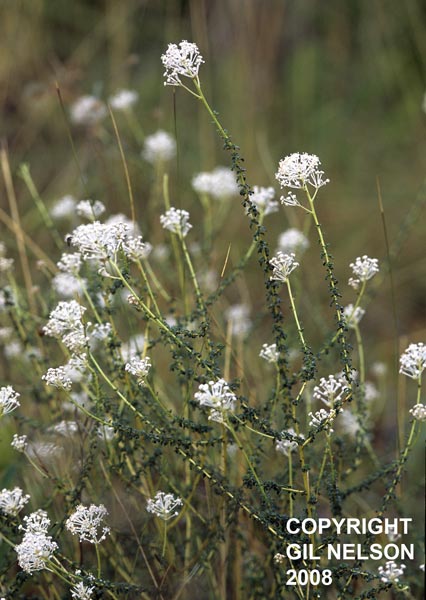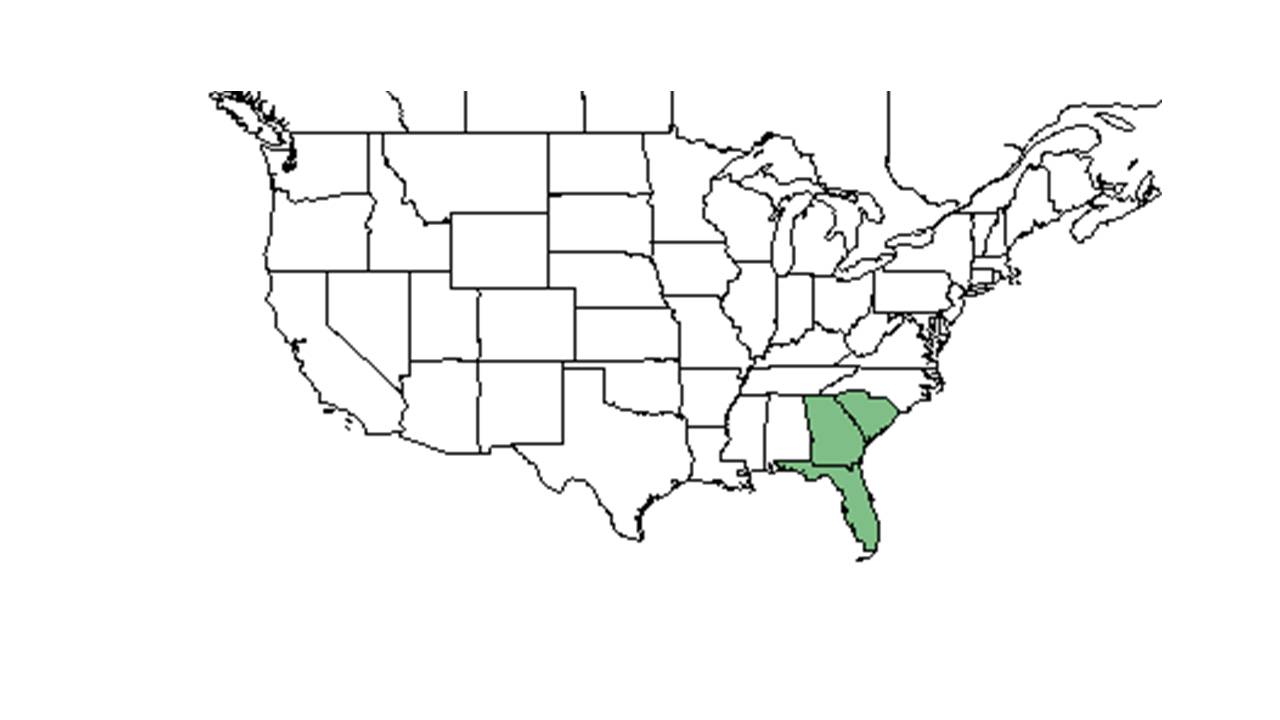Difference between revisions of "Ceanothus microphyllus"
Krobertson (talk | contribs) (→Description) |
Krobertson (talk | contribs) (→Distribution) |
||
| Line 27: | Line 27: | ||
==Distribution== | ==Distribution== | ||
| − | It is found in Alabama, Georgia, and Florida. It is listed as vulnerable in Alabama and Georgia<ref name="natureserve">[[http://explorer.natureserve.org/servlet/NatureServe?searchName=Ceanothus+microphyllus]]NatureServe. Accessed: April 12, 2016</ref> | + | It is found in Alabama, Georgia, and Florida. It is listed as vulnerable in Alabama and Georgia.<ref name="natureserve">[[http://explorer.natureserve.org/servlet/NatureServe?searchName=Ceanothus+microphyllus]]NatureServe. Accessed: April 12, 2016</ref> |
==Ecology== | ==Ecology== | ||
Revision as of 15:16, 11 August 2016
| Ceanothus microphyllus | |
|---|---|

| |
| Photo by Gil Nelson | |
| Scientific classification | |
| Kingdom: | Plantae |
| Division: | Magnoliophyta - Flowering plants |
| Class: | Magnoliopsida – Dicotyledons |
| Order: | Rhamnales |
| Family: | Rhamnaceae |
| Genus: | Ceanothus |
| Species: | C. microphyllus |
| Binomial name | |
| Ceanothus microphyllus Michx. | |

| |
| Natural range of Ceanothus microphyllus from USDA NRCS Plants Database. | |
Common name: littleleaf buckbrush
Contents
Taxonomic notes
The specific epithet refers to the reduced leaves that are tiny rounded nubs.[1]
Description
This species has been observed to have several main branches near the base.[2]
Distribution
It is found in Alabama, Georgia, and Florida. It is listed as vulnerable in Alabama and Georgia.[3]
Ecology
Habitat
This species has been found in open longleaf pine-wiregrass savannahs, ridges, slopes, and wetlands. It has been observed to grow in well-drained dry loamy sands in the uplands as well as mesic environments. Associated species include Pinus palustris and Aristida stricta[2].
Seed dispersal
According to Kay Kirkman, a plant ecologist, this species disperses by explosion mechanisms or by ants. [4]
Fire ecology
This species occurs in mature longleaf pine communities that are frequently burned[2].
Conservation and management
Cultivation and restoration
Photo Gallery
References and notes
- ↑ [[1]]. Native Florida Wildflowers. Accessed: April 12, 2016
- ↑ 2.0 2.1 2.2 Florida State University Robert K. Godfrey Herbarium database. URL: http://herbarium.bio.fsu.edu. Last accessed: June 2014. Collectors: Loran C. Anderson, R. A. Norris, Andre F. Clewell, Robert K. Godfrey, Steve L. Orzell, R. Komarek and Helen Roth. States and Counties: Florida: Gadsden, Liberty, and Wakulla. Georgia: Decatur, Grady, and Thomas.
- ↑ [[2]]NatureServe. Accessed: April 12, 2016
- ↑ Kay Kirkman, unpublished data, 2015.